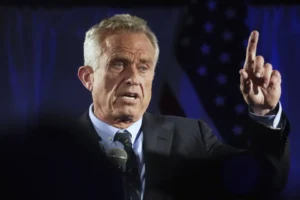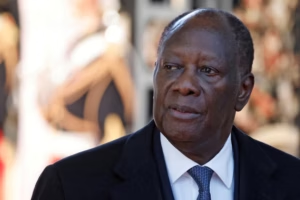
It’s Juneteenth 2022 and I am uncomfortable on a New York City beach. It’s not that the sun is too hot, which it isn’t, or that the water is too cold, though it is. The discomfort I feel comes from looking around the crowded sands and realizing how few faces look like mine on what’s meant to be a day celebrating us.
When President Joe Biden signed a bill declaring Juneteenth a federal holiday in 2021, it was one of the few tangible changes that was put into place after a wave of protests for racial justice that had rocked the country the previous year. In theory, the holiday recognized a turning point in America’s history as the last slaves learned of their freedom. But as I sat on that beach, I couldn’t help but wonder: “Who is this really for?â€
Juneteenth has its origins in Texas, where in 1865 the head of the federal occupation issued General Order Number 3, and in doing so brought the Emancipation Proclamation into full force across the reunited country. Yet that same order made clear that the newly freed Black people couldn’t slack off. The connection between owner and property became one of “employer and hired labor.†Accordingly, the Union commander decreed that “freedmen are advised to remain quietly at their present homes and work for wages,†and stressed that “they will not be supported in idleness†if they left their former oppressor’s land.
Texas first made Juneteenth an official holiday in 1980. After decades as a more regional celebration, the holiday quickly gained awareness nationally over the last decade, especially after it was featured on the ABC sitcom “black-ishâ€Â in 2017. But it was the civil rights protests of 2020 that truly propelled it into the mainstream, as millions took to the streets to demand an end to police brutality against Black Americans following the death of George Floyd in Minnesota and Breonna Taylor in Kentucky. Lawmakers seized on boosting Juneteenth as a way to show that those millions of voices weren’t being totally ignored.
But it’s seeming more and more like this was a gilded token. Hopes of federal police reform were dashed when Republicans realized they could hammer Democrats for being in favor of “defunding the police.†Support for Black Lives Matter has plummeted since 2020, with only a narrow majority backing the movement compared to the two-thirds support that was once there.
And when you look at who is getting to enjoy the newly established holiday, it’s clear that the benefit is not evenly distributed. Consulting firm Mercer found that the share of private employers that made Juneteenth a paid holiday surged from 9% in 2021 to 39% in 2023.
We then must consider that roughly a quarter of Black households in America are earning less than $25,000 per year, according to U.S. Census Bureau data. That puts then in the bottom 10% of earners, according to the Bureau of Labor Statistics. A Center for American Progress analysis of BLS data shows that among the lowest 10% of earners, 47% have no access to any form of paid time off, a number that falls to 38% when looking at part-time workers. Taken together, that means there’s a major chunk of the Black population that’s likely getting no benefit at all from Juneteenth.
(One exception is the financial service industry, a sector in which Black Americans are represented proportionately to the national average and where,  according to Mercer, 63% of employers provide paid time off for Juneteenth.)
Even the corporate enthusiasm for the holiday seems to be waning. As historian and MSNBC contributor Keisha N. Blain noted in 2021, numerous major corporations were tripping over themselves to honor the holiday’s roots while looking to potentially turning a profit. A website from the Association of Corporate Citizen Professionals, posted before Juneteenth became a national holiday, suggested that its member-corporations lean into making it “more than just a day off†for employees.
Unfortunately, now some companies that are shuttered on this Juneteenth are struggling to voice why employees are getting the day off at all. Author Morgan Jenkins posted a screenshot on X on Tuesday of a business announcing it was closed because the day “holds great significance as we celebrate and honor every individual whose efforts and sacrifices have contributed to the freedoms we enjoy today.†The most charitable interpretation is that the company had unknowingly repurposed its Memorial Day messaging; the more upsetting option is that, as several people responded, it’s an attempt to “All Lives Matterâ€Â a day celebrating the end of slavery.
If anything, it seems Juneteenth is becoming the latest holiday conceived to inspire reverence, only to be dulled and deadened. Memorial Day, another holiday with Black origins, shifted over time from a solemn occurrence into a way to give Americans a three-day weekend. Martin Luther King Day, which only an estimated 45% of companies give time off for, is billed as a day of service without acknowledging any of King’s more transformative economic ideas.
The answer to the discomfort that I felt two years ago, which is still with me today, is to press for more than a swiftly fading acknowledgment of Black Americans’ history. One day off for some is paltry and cruel when compared with the oppression and discrimination borne by so many. Juneteenth must be seen as a start down the path to greater racial justice, not an endpoint.
This article was originally published on MSNBC.com






